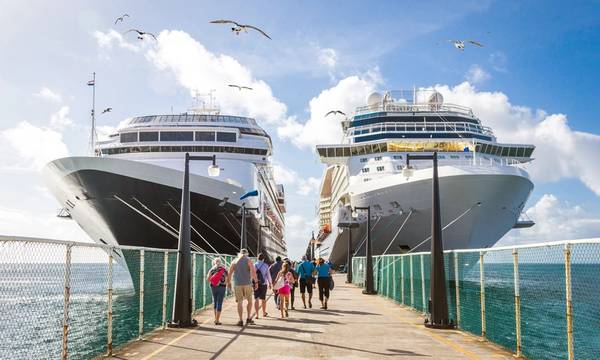
The global cruise industry expects to carry 10% more passengers by 2028 than the 31.7 million who took cruise holidays in 2023, when the sector surpassed pre-pandemic levels, but sees some routes exposed to protests over overtourism.
Long criticized for its impact on the environment and coastal communities, the industry has ordered 57 more cruise ships in addition to some 300 now in operation to meet the projected demand, said the European director of Cruise Lines International Association (CLIA), Marie-Caroline Laurent.
At the same time, companies are working to adapt the ships so they can switch to electricity from highly-polluting marine fuel when they are moored at ports and to be ready to comply with EU maritime environment regulations by 2030.
But as travel continues to grow, cruise operators face a growing debate about excessive tourist numbers in crowded European port cities such as Spain's Barcelona, the scene of protests this month in which a small group sprayed tourists with water pistols.
Cruise ship passengers represent just 4% of all tourists visiting Barcelona, CLIA representatives said.
Jaume Collboni, the mayor of Barcelona, which is the biggest cruise ship port in Europe, told Reuters his administration would seek a new deal with the port to reduce the number of one-day cruise calls.
CLIA's Laurent said violent protests could have an impact on the itineraries in the future.
"There will be some consideration of adapting the itineraries if for some reason we feel that all passengers will not be well-treated," she said.
Instead, the industry could offer more cruise holidays in Asia, in northern Europe and the Caribbean in the coming years, as well as different ports in the Mediterranean.
The World Travel & Tourism Council expects Spain's tourism revenues to reach nearly 100 billion euros this year, 11% above pre-pandemic 2019 levels.
Meanwhile, the cruise industry forecasts a 5% increase in visitors in Spain during 2024, below the 13% increase in summer visitor arrivals projected by Spanish authorities.
(Reuters - Reporting by Corina Pons, editing by Andrei Khalip and Tomasz Janowski)




